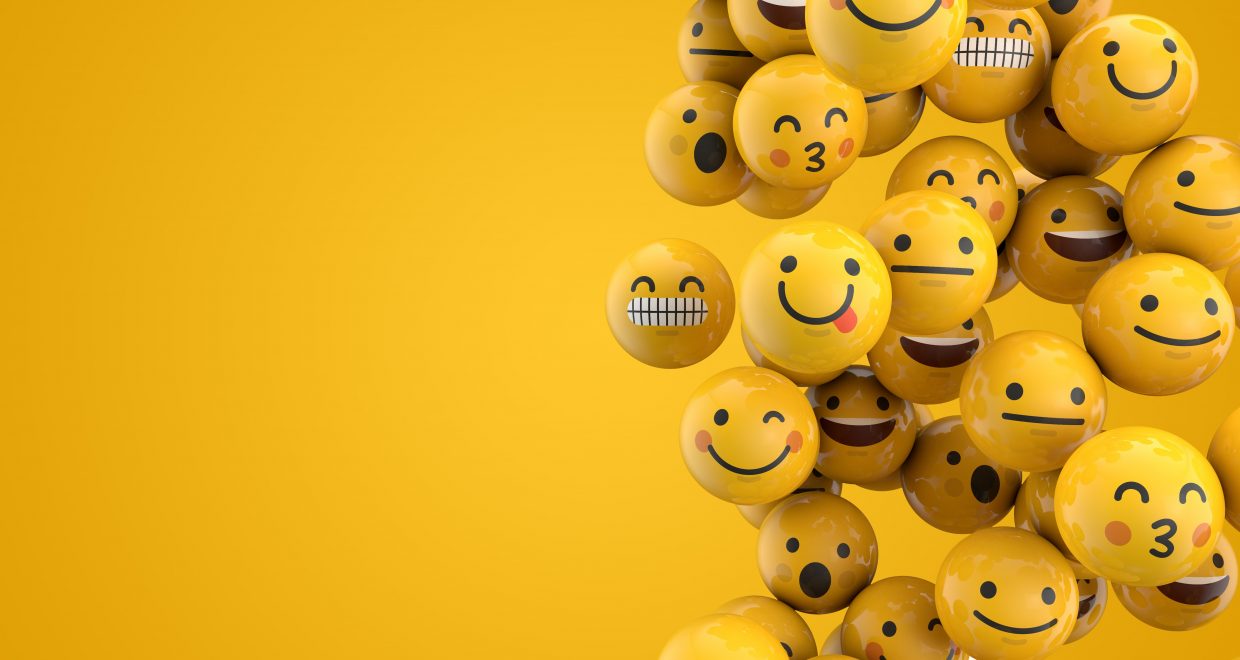Do emojis pose a threat to the future of language?
Any headline that includes a yes/no question can usually be answered with an emphatic ‘no’. This is known as Betteridge’s law. Headlines like this are typically clumsy attempts to generate controversy out of nothing. If the answer to the question ‘do emoji pose a threat to the future of language?’ were to have anything to do with dumbing-down, or of kids today being too lazy to grapple with full sentences, this article would provide a very good example of this law. Emoji may be evidence of the evolution of language and communication, but they’re not a sign that social life as we know it is deteriorating.
However, as I discuss in my new book The Emoji Revolution, there’s another way to address this question – and one which raises issues about the future of communication which are potentially far more worrying than changing literacy practices.
Tim Berners-Lee, the founder of the world wide web, recently warned of the danger that comes from the internet being overseen by just a few corporations. Power, he worried, was being concentrated in the hands of a few huge platforms such as Facebook and Google, which in effect get to ‘control which ideas and opinions are seen and shared’. As we’ve been seeing with the controversies over fake news and disinformation in the last few years, this centralisation and lack of scrutiny can have significant implications for the way our whole society functions.
But this sort of corporate control isn’t the case simply for the platforms on which we communicate. It’s also now happening with some of the resources we use to communicate. Emoji are also ‘owned’ by a small group of very large firms. Corporations such as Apple, Google and Microsoft are the primary members of the consortium which oversees their regulation. These companies also own the designs for the different emoji you use on your smart phone. Their popularity has meant that they’ve become inextricably tied to the commercial concerns of these firms. We may see emoji simply as cute accoutrements to online writing, but they’re also a significant business asset.
Why, though, should this be a concern for society at large? Back in the year 2000, a company based in Dallas named Despair.com officially registered the emoticon 🙁 as its trademark. It then announced that it had filed a lawsuit against anyone who was infringing its intellectual property rights by using the symbol. If you’d typed out 🙁 in an email or text message, you’d inadvertently violated their copyright and were liable for a fine. The whole escapade was actually a joke – the company later sent out a press release explaining that their fictitious lawsuit was a way of satirizing absurdly opportunistic trends intellectual in property law. But the idea was plausible enough for it to provoke panic amongst fans of the emoticon for a short while.
Two decades later, and the emoji we use every day are, in effect, an instance of exactly this same strategy – and one which we’ve all accepted without really noticing. The big tech companies aren’t suing us if we simply use their symbols of course, but they do make money from us every time we use them. Not only that, but they also decide which symbols get to appear on our smartphones and which don’t; and they make these decisions based on the values they hold about the state of the world. All of which means that a huge amount of our personal communication now relies on resources which we’re simply leasing from the corporate world.
Just over 200 years, ago, in his prologue to ‘Jerusalem The Emanation of the Giant Albion’, William Blake wrote of
… that God from whom all books are given,
Who in mysterious Sinai’s awful cave
To Man the wondrous art of writing gave.
The art of writing itself may still be shared freely by humanity as a whole. But if the technologies we rely on when we want to practice this art, when we actually want to send a written message to each other, are controlled by a few global businesses, then we really could be edging towards a techno-corporate dystopia.






Very interesting points. In my opinion, as long as emojis won’t be used in academic, business or formal writing in general, they won’t affect the future of language.